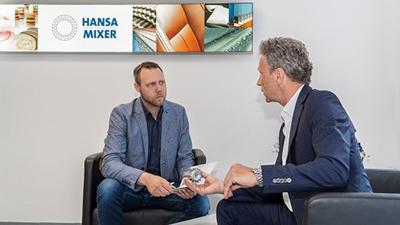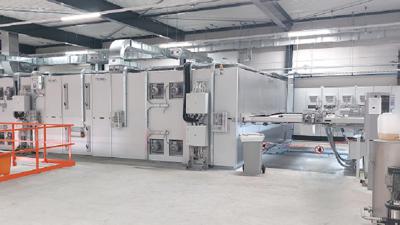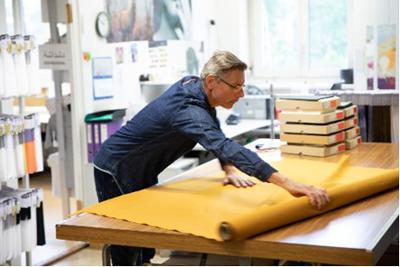Interview with Daniel Odermatt, Ventile
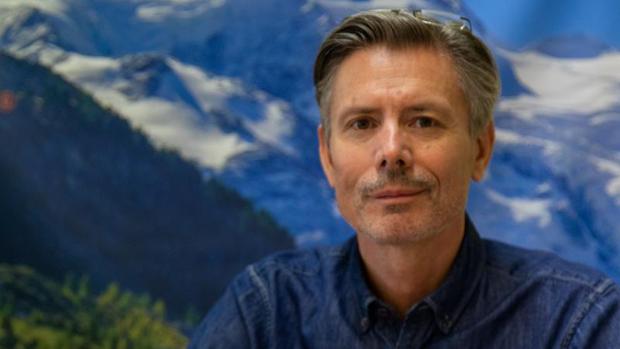
Daniel Odermatt, Brand Director Ventile (Source: Ventile)
Ventile is specialized in sustainable fabrics made without the use of PFCs. As part of its ongoing sustainability initiative, Ventile Fabrics, Stotz & Co. AG, Zurich/Switzerland, is cooperating with nature-based performance fiber technology supplier, NordShield, Espoo/Finland.
Ventile’s philosophy is slow fashion. On your homepage you say that you connect social and environmental awareness with well-made and durable clothing. Can you please explain this to us?
In 2018, Ventile launched its ‘Join the movement’ campaign which encourages brands to consider the environmental impact and to opt for a slow fashion approach to design. Ventile is proud to be part of this movement.
Ventile Organic is made using premium extra-long-staple fibers which are grown without the use of GMOs and harmful toxic inputs such as artificial fertilizers, herbicides, and pesticides. The fabric is produced using expert weaving and dyeing techniques to preserve the lifespan of the final product and the fully twisted yarns and dense weaving production process give it its unique durability, providing the best results for cotton on the market.
The durability of our fabric means we embrace the ‘slow fashion movement’ with product longevity very much at the heart of what we do. Customers frequently send us pictures of Ventile jackets they have had for decades.
In 2018, Ventile launched its ‘Join the movement’ campaign which encourages brands to consider the environmental impact and to opt for a slow fashion approach to design. Ventile is proud to be part of this movement.
Ventile Organic is made using premium extra-long-staple fibers which are grown without the use of GMOs and harmful toxic inputs such as artificial fertilizers, herbicides, and pesticides. The fabric is produced using expert weaving and dyeing techniques to preserve the lifespan of the final product and the fully twisted yarns and dense weaving production process give it its unique durability, providing the best results for cotton on the market.
The durability of our fabric means we embrace the ‘slow fashion movement’ with product longevity very much at the heart of what we do. Customers frequently send us pictures of Ventile jackets they have had for decades.
In cooperation with NordShield, you developed long-lasting fabrics that have been treated using NordShield’s innovative wood-based technology. What kind of barrier technology is it?
NordShield’s wood-based technology utilizes the unique innovation of a nature-inspired surface that keeps the product odorless, fresh, and longer lasting. The novelty in this technology is in anchored and orientated bio-based resin acids that form a microscopically thin film on the textile surface.
Can this application be made using conventional machines? How is this technology implemented in production?
The NordShield treatment can be applied using conventional wet finishing equipment without any modifications. The product is supplied as a water-based concentrate that is simply diluted with water into a treatment solution. The thin layer is formed upon drying and no additional energy consuming curing step is required.
How is the performance of these fabrics? Do we have to accept sacrifices in this respect? In what kind of applications can these fabrics be used?
The fabric is weather-proof and withstands a testing of 600 mm hydrostatic head. The dense cotton fabric can be used for coats, jackets, shoes, hats, bags, tents, and umbrellas.
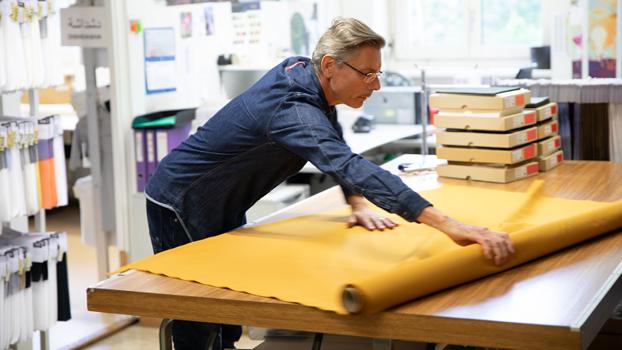
(Source: Ventile)
How sustainable are these fabrics compared to textiles currently on the market?
Lots of fabrics are marketed as sustainable due to their raw materials. However, how the fabrics are manufactured also determines just how sustainable they are. We are on a sustainability journey here at Ventile, one which we are building on year on year through research and development and our work with scientists. Overall, natural fabrics such as Ventile are far more sustainable than synthetic or recycled synthetic fabrics and we’re proud to offer a sustainable fabric option for designers around the world.
Where are we on the road to a truly sustainable textile industry in Europe? Is there some kind of timetable for when your production will be clean, safe and climate neutral (without climate compensation)?
Ventile fabric is PFC-free and is produced in compliance with strict Swiss environmental regulations. Carbon-neutral production continues to raise questions within the textile industry, and this is a journey that we, like so many others, are navigating.
At present, we use the latest technology to maximize efficiency of water and energy consumption throughout all processes. Our warehouse is located close to our manufacturing plant, reducing unnecessary fuel consumption. It is likely that in the coming years, the industry will see a complete ban on the use of PFCs. That is why we began working with specialist scientists so that we could go PFC-free, and we will continue to work with them on our sustainability journey.
How do you see the role of the industry here, and what is the role of the consumer?
Sales of Ventile Eco now account for 54% of the total sales by meter and so there is certainly consumer appetite and demand for sustainable textile solutions. At Ventile we look to produce textiles that last a lifetime and offer a range of different fabrications to meet the needs of our consumers.
The interview was conducted by Mechthild Maas, editor of TextileTechnology, with Daniel Odermatt, Brand Director Ventile and Kristoffer Ekman, CEO of NordShield.

